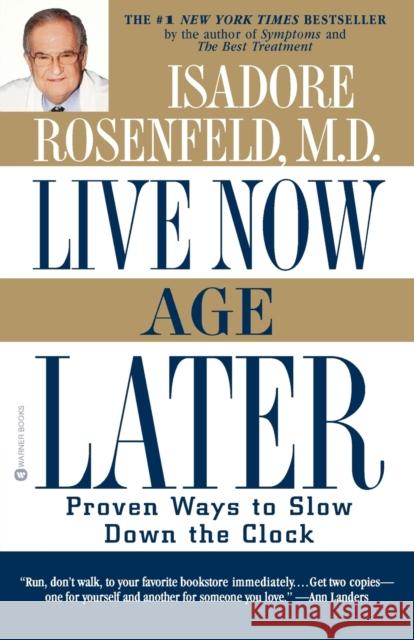4 Powerful Health Benefits of Resveratrol
Scientists have been
astonished by the remarkable health benefits associated with
resveratrol. This unique nutrient found in grape skins has a powerful
effect on the genetic expression of the mitochondria within every cell.
By positively effecting mitochondrial function, resveratrol, has been
shown to help in the prevention of cancer, heart disease and other metabolic conditions (
1). In this article, you will discover 4 powerful health benefits of resveratrol.
Researchers have been intrigued for years about what has been
traditionally called the French paradox. This refers to how many of
these native French are able to smoke cigarettes and drink lots of
alcohol and still maintain good health. They have looked at the dark,
fermented wines these individuals drink on a regular basis.
They have found the active compound in red wine, called resveratrol,
has extraordinary health benefits. Resveratrol is a unique
polyphenolic anti-oxidant found in the grape skins and seeds and some
berries. It plays a critical role in the plant’s natural defense system
against injury, infection and disease (
2).
 Resveratrol and Gene Expression:
Resveratrol and Gene Expression:
Resveratrol has been shown to have an incredible influence on gene expression that has profound anti-aging effects (
3).
This mimics the positive benefits of caloric restriction and extends
lifespan. Most people are intimidated by extreme caloric restriction
and would prefer to get the same anti-aging benefits from an
anti-oxidant rich diet and supplements such as resveratrol.
A Harvard study in 2003 found that resveratrol boosted the life span of yeast cells by as much as 70% (
4).
They then carried the testing out with similar results in roundworms
and fruit flies. This made resveratrol the first compound to have
anti-aging benefits in a widely divergent species. Italian scientists
in 2006 showed that resveratrol could extend life by more than 50% in
more advanced species of fish (
5).

Resveratrol and Mitochondrial Health:
Resveratrol has been shown to activate a group of mitochondrial proteins in the sirtuin family and in particular (SIRT1) (
6).
Several studies have shown that this sirtuin activation results in an
increased level of mitochrondria in the body. This plays a big role in
energy production, fat and sugar
metabolism and blood sugar stability. With improved blood sugar the
body is better able to regulate insulin and other hormones which reduces
inflammation and improves fat burning.
The mitochondria of the cell control the metabolic function of the
cell and ultimately the body. Resveratrol’s ability to reduce
inflammatory stress on the mitochondria and upregulate mitochondrial
numbers has an enormous impact on whole body health. Healthy restored
mitochondria are significantly more efficient and produce less free
radicals than older mitochondria.

Resveratrol and the Nitric Oxide Cycle
Resveratrol has a strong ability at optimizing the health of the
nitric oxide cycle. Nitric oxide is a chemical signaling molecule that
is involved in the nervous, immune and vascular systems. There are
three main forms of nitric oxide which include endothelial nitric oxide
(eNOS), inducible nitric oxide (iNOS) and neuronal nitric oxide (nNOS).
Healthy brain
and cardiovascular function depends upon a greater eNOS and nNOS
activity and suppressed iNOS activity. This pattern allows for healthy
blood flow in the brain and coronary arteries and blood vessels
throughout the body.
Chronic inflammatory stress lowers eNOS and nNOS activity and
increases iNOS activity. This pattern is a major risk factor for
hypertenstion, cardiovascular disease and neurodegenerative states.
Resveratrol has been shown to strongly improve this nitric oxide
cycle which enhances endothelial activity to enhance blood flow dynamics
to important regions of the body such as the coronary arteries and
brain (
7,
8). This strongly reduces the risk of heart disease and neurodegenerative states like Alzheimer’s and Parkinson’s.

Resveratrol and Cancer:
Resveratrol has a profound effect at inhibiting the master inflammatory compound Nuclear factor Kappa Beta (NF-KB) (
9).
NF-KB initiates inflammatory processes that are implicated in cancer
cell formation. Resveratrol also makes cancer cells more vulnerable to
our bodies natural immune
cell induced attacks. Scientists are looking very closely at
reseveratrol as an adjunct therapy for increasing the effectiveness of
traditional chemotherapy on destroying cancerous growths.
Cancer cells are known to have dysfunctional mitochondrial function.
This is evidenced in the inability for cancer cells to derive energy
from oxidative phosphorylation. These cells rely completely on
anaerobic glycolysis for energy production. Addressing the mitochondria
which drives the energy production of the cell is key to terminating
abnormal tissue growths
Part of the process of breast cancer
is a dysregulation of the Heregulin-Beta1 (HRG-beta 1) cell signaling
pathway. This pathway activates the Matrix metalloproteinase (MMP) 9
enzyme which leads to invasive tumor growth. Resveratrol has also been
able to shown to down regulate this pathway and slow the growth of
breast cancer.
Many other studies have indicated resveratrol’s effectiveness in
shutting down growth in pancreatic, liver, colon, prostatic, skin and
many other cancer cell types (
10,
11).
Most scientists relate this back to the ability of resveratrol to
effect mitochondrial function through the sirtuin proteins that regulate
proper function.

Proper Resveratrol Dosages:
Supplements should be in the range of 20-100 mg to achieve the same benefits observed in most of these studies on degenerative disease
states. The dosage of 20mg daily is appropriate for healthy adults
without any significant health history to obtain the beneficial
anti-aging gene expression that resveratrol provides. Individuals with
advanced cancer should look at getting dosages in the 100-200 mg range.
An ounce of red wine averages around 90 micrograms of resveratrol.
This is the 220 times less than the minimal dosage (20 mg) of
resveratrol supplementation. A glass of wine is approximately five and a
third ounces. At this scale it would take 41 glasses of red wine to
achieve the minimal supplemental dosage of resveratrol used in these
studies.










